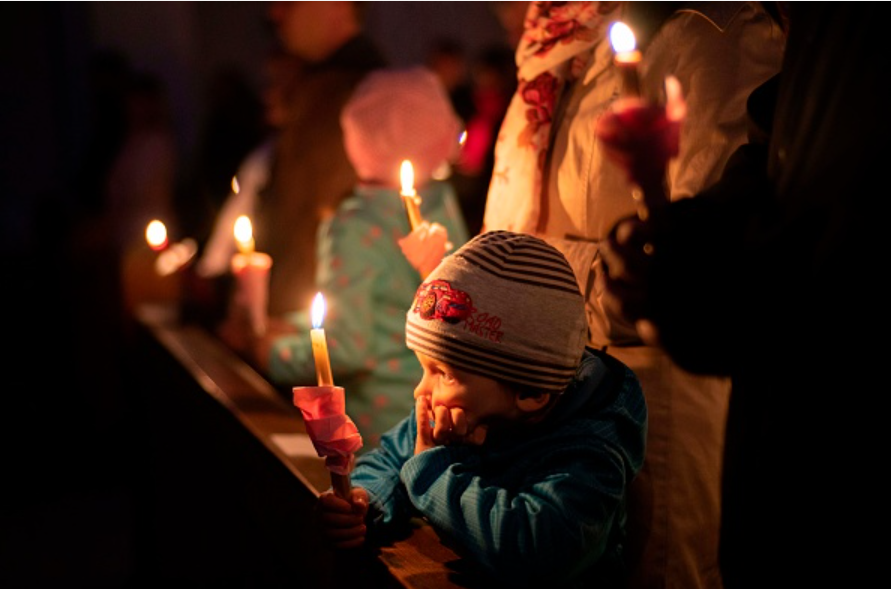Our God is the God of all creation, the God of life, the maker of all things in the heavens and on earth.
We feel that especially at this time of year, when we see so many little signs of new life and growth everywhere. Flowers and plants are beginning to bloom; we hear the songs of the birds outside our windows.
We should reflect more on the meaning of creation and the theology of creation — on the beauty and wonders of the world around us, on how God’s glory and intentions are revealed in the things that he has made for us.
The earth is the Lord’s and all that is in it, the psalmist tells us.
When the psalmist surveys all of the Lord’s works, from the moon and stars above to the earth and seas below, he is amazed at God’s greatest achievement — the human person, man and woman created out of love in God’s image: “What is man that you are mindful of him. … You have made him little less than God, crowned him with glory and honor.”
The Bible is the book of life. It is also a book about life, telling the world’s story from its creation, which we read about on the first pages, to the new creation, the new heavens, and new earth, which we read about on its final pages.
At the heart of the story is the living relationship of God with the human person he created.
The ones who put Jesus to death could not understand this. They accused Jesus of being a man who was trying to make himself God.
They could not imagine that God would have the humility, the daring, or the love to enter into this world that he created and to share in the life of the creature he made in his image.
St. Paul calls Jesus the “firstborn of all creation” and the “firstborn from the dead.”
“In him was life,” St. John tells us at the start of his Gospel. And the promise that Jesus makes to us is the promise of life. “I came that they may have life, and have it abundantly,” he said.
That is why Jesus was born. This is why he lived and why he suffered and died. And that is why he was “born” from the dead three days later.
He rose from the dead to give us life. Not physical life or biological life. He had already given us that, in our birth to our human parents. What he comes to share is spiritual life and divine life. Life like he has life. Life as a child of God. Life that is eternal.
Our God is the God of the living, not the dead. He makes us, each and every one of us, to be with him. Not only for a little while, for the span of our mortal lives. No. God makes us to be with him for all eternity.
The joy of Easter is the joy of knowing that a great battle — the great struggle between life and death — has been won.
Easter is the triumph of the Lord, it is the victory of divine love and life over human sin and death.
Our Lord’s victory should fill us with hope, because his victory is your victory and mine.
Easter tells us that creation has a destination, a purpose. What is born is not born to die, but to live. Easter tells us that God’s love is stronger than death.
If we remain in his love, if we live by his teachings and walk in the path he sets before us, no matter what might happen to us — even affliction, sickness, persecution, violence — with Jesus we will conquer, we will have life.
His resurrection is a promise and an invitation to believe, to trust, to build our lives on this foundation. Whatever struggles we face, we can meet them with this certainty that we are destined for eternity.
Jesus tells us, “I am the resurrection and the life; whoever believes in me, even if he dies, will live, and everyone who lives and believes in me will never die.”
And then Our Lord asks us, “Do you believe this?”
This Easter let us say yes again to Our Lord’s invitation.
The power of the resurrection is the power that we have now to live as “Easter people,” a people alive in the risen Christ, a people who know we are on the way to heaven, and the way to heaven is the way of love.
Pray for me and I will pray for you.
And let us entrust ourselves to Mary, our Blessed Mother and the mother of the living. May she help all of us to live with the joy of the Resurrection.

